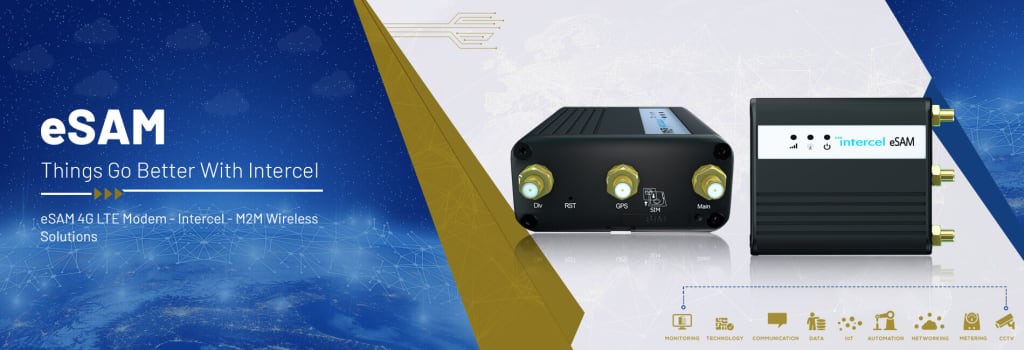
An IoT industrial router, also known as an Industrial IoT (IIoT) router, is a specialized networking device designed to enable communication and connectivity in industrial environments. It plays a crucial role in connecting various industrial devices, such as sensors, actuators, machines, and other equipment, to the internet and enabling data exchange for monitoring, control, and automation purposes.
Here are some key features and functionalities of an IoT industrial router:
1. Robust and rugged design: Industrial environments can be challenging, with harsh conditions such as extreme temperatures, humidity, vibrations, and electromagnetic interference. IoT industrial routers are built to withstand these conditions, typically featuring ruggedized enclosures and industrial-grade components.
2. Wide range of connectivity options: Industrial routers support a variety of wired and wireless connectivity options to accommodate diverse industrial applications. They often include Ethernet ports, serial ports (RS-232/RS-485), Wi-Fi, cellular (3G/4G/5G), and sometimes even satellite communication.
3. Secure communication: Security is a top concern in industrial applications to protect sensitive data and ensure operational integrity. IoT industrial routers employ advanced security features such as encryption, VPN (Virtual Private Network) support, firewall capabilities, access control, and authentication mechanisms to safeguard the communication between devices and the cloud or enterprise networks.
4. Protocol support and integration: Industrial environments often utilize various industrial protocols for data exchange, such as Modbus, Profibus, OPC-UA, MQTT, and more. IoT industrial routers are equipped with protocol support and integration capabilities, allowing them to bridge different protocols and enable seamless communication between devices using different standards.
5. Edge computing capabilities: To minimize latency, reduce bandwidth usage, and enable real-time processing, IoT industrial routers may incorporate edge computing capabilities. This allows them to perform data filtering, aggregation, analysis, and local decision-making at the network edge, enhancing the overall efficiency of industrial systems.
6. Remote management and monitoring: Industrial routers often come with remote management and monitoring functionalities, allowing administrators to configure, update, and monitor the routers' performance and connectivity remotely. These capabilities help in troubleshooting, maintenance, and ensuring the routers are functioning optimally.
7. Scalability and flexibility: Industrial networks can vary greatly in size and complexity, requiring scalable and flexible solutions. IoT industrial routers are designed to accommodate the expansion of devices and networks, allowing for easy integration of additional devices and offering options for modular expansion.
Overall, IoT industrial routers serve as a critical component in industrial IoT deployments, facilitating reliable and secure communication between industrial devices and enabling seamless integration with the broader IoT ecosystem. They play a vital role in optimizing industrial processes, enhancing efficiency, enabling predictive maintenance, and unlocking the potential of Industry 4.0 initiatives.
An IoT industrial router, also known as an Industrial IoT (IIoT) router, is a specialized networking device designed to enable communication and connectivity in industrial environments. It plays a crucial role in connecting various industrial devices, such as sensors, actuators, machines, and other equipment, to the internet and enabling data exchange for monitoring, control, and automation purposes.
An [IoT industrial router][1], also known as an Industrial IoT (IIoT) router, is a specialized networking device designed to enable communication and connectivity in industrial environments. It plays a crucial role in connecting various industrial devices, such as sensors, actuators, machines, and other equipment, to the internet and enabling data exchange for monitoring, control, and automation purposes.
Here are some key features and functionalities of an IoT industrial router:
Robust and rugged design: Industrial environments can be IoT Router, IoT Industrial Modem Router
Intercel is Australia's leading cellular solution provider for IoT Router and manufacturer and supplier of GSM, GPRS, 3G, and 4Gindustrial modems for machine-to-machine applications. Intercel is at a pole position for providing innovative and reliable IoT Modem Router cellular communication solutions worldwide.
Some of the main applications include Building Automation, Fleet Management, Industrial Monitoring, Electronic Payment System, Security Systems, Smart Metering, Environmental Monitoring, SoHo /IT & Networking, Technical Support, and Healthcare.
Intercel's main goal is to provide cost-effective, reliable, and practical IoT Modem Router mobile solutions to customers. We have experienced research and development team, who provides a wide range of their expertise in IoT Modem Router and industrial application like, Environmental Monitoring, Fleet management, Security, Metering, Automation, and Industrial Monitoring.





Comments
There are no comments for this story
Be the first to respond and start the conversation.